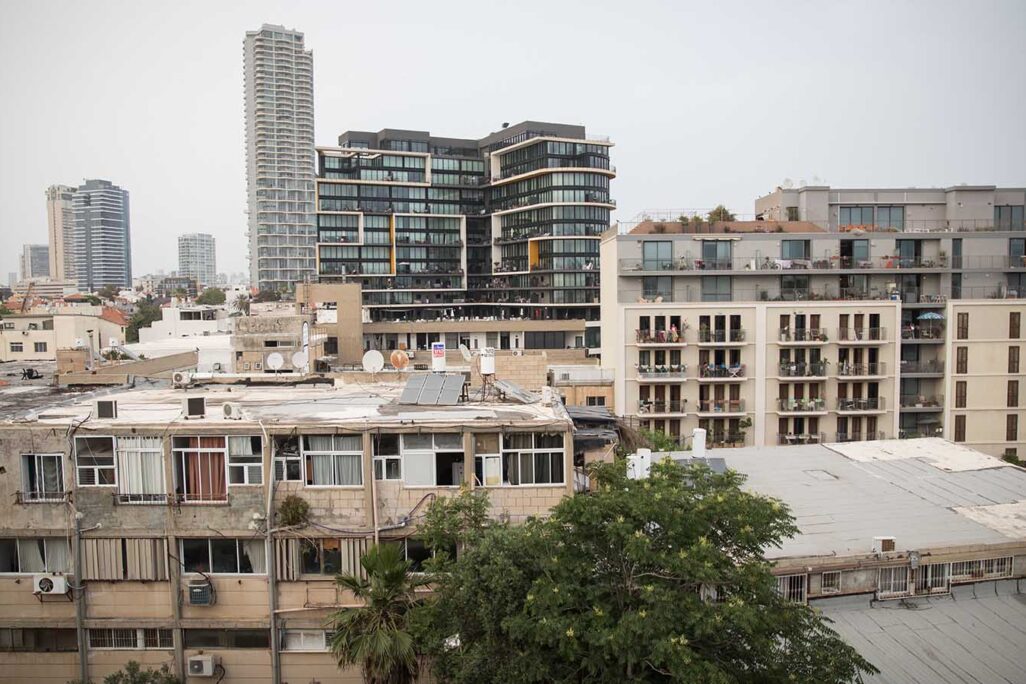
Every year in late May and early June, the tension rises. The deadline for renewing the lease in our 70 square meter, South Tel Aviv apartment is fast approaching. The fear of a price increase for our rent is gnawing at us – we pay 4,550 shekels ($1,340) a month. Although so far our increases have been small – 100 to 200 shekels – we have heard stories this year about price jumps of even 1,000 shekels a month. It seems that the time has come to explore other options, perhaps even outside Tel Aviv. But where?
The search was limited to a range of 30 to 40 minutes by public transport or bicycle to our workplace in South Tel Aviv. The first stop was, of course, Yad Shtayim – Israel’s online second hand forum for selling anything from crockery to houses. And the first destination is Holon, located in the south of the Tel Aviv metropolitan area.
Holon: Second floor, 50 sq.m., 4,500 shekels ($1,320) per month
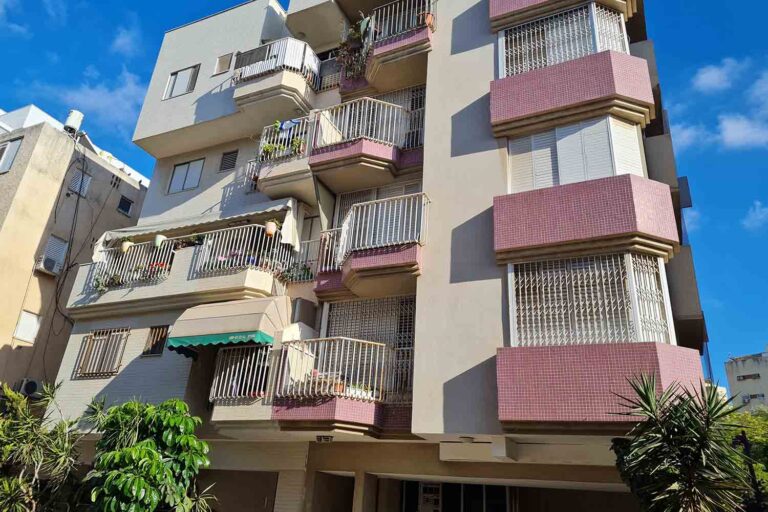
With our experience of moving apartments seven times in ten years, an apartment in Holon was quickly found in a relevant location: Shmuel Hanagid Street in the old area of the city, nearby main Holon thoroughfares. The apartment listed three rooms, 50 square meters, for 4,500 shekels ($1320) a month. Seconds after the ad was published, I wrote to its owner “I want to see the apartment today.” And he, who probably had not yet time to get up from the table, replied at once. We arranged to meet.
The street is a centrally located side street, quiet and pleasant. A mix of old and new buildings, all low-rise. The apartment in question is on the second floor of a building from the 80s or 90s, and looks relatively good: a front door with a key code, an elevator, and even a garden with decent greenery. Parking, if we had a car, would have to be found on the street.
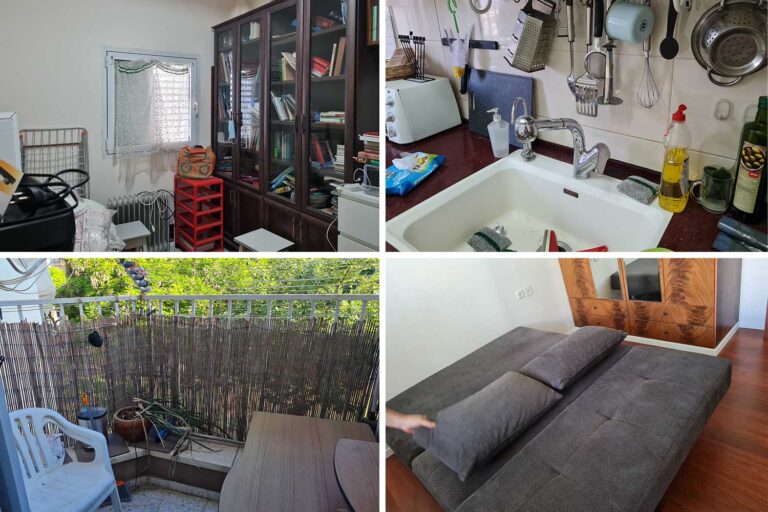
The apartment door was opened by Tzachi, who turned out to be a very nice man. He said he was interested in potential tenants and would be happy to rent to us (not that these intentions weren’t already clear). The apartment, he says, belonged to his wife’s recently deceased father, and this is the first time it has been rented.
The apartment is old but bright, paved with relatively new parquet floors and comes furnished. There is an air conditioner and closet in each room, a sofa and armchair in the living room, tables and chairs in the dining area, refrigerator, two TVs, a double bed in the bedroom and a guest bed in the bomb shelter which can also be used as a study. And there are a lot of display cases – display cases full of porcelain and old watches. Also pictures and tapestries, an old library, including books of the deceased, and a landline telephone. Tzachi clarified that everything that is not wanted by the tenants will be removed.
The kitchen is narrow and leaves little room for maneuvering, and the cabinets are still laden with cutlery. In the small bedroom there is hardly room to move. The adjoining bathroom has a shower and toilet, however the ceiling is extremely low and will not allow those over 1.90m (6’ 2“) to stand upright. The extra guest bathroom is tiny. The south terrace is also small, maybe just enough to fit two people, but has a nice view.
The neighborhood is old and neglected, Tzachi says with impressive honesty. Many of its residents are adults, but the proximity to Tel Aviv also brought quite a few students and young families with children to the area. The final straw: the property tax, which Israeli tenants are required to pay on top of rent, is quite high at 470 shekels ($140) for two months. We said goodbye with a handshake.
In America, it turns out, it’s worse
At home, in the evening, I stumbled upon a new John Oliver program. The soaring rental market is a hot topic in America as well. And the situation there, it seems, is even worse.
Bat Yam: Fourth floor, 3 rooms, 80 sq.m., 3,700 shekels ($1,085) per month
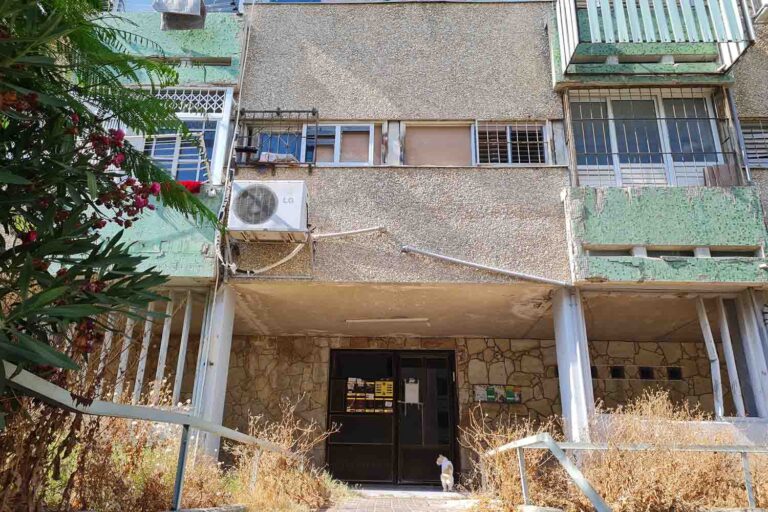
The second search day opened with the Facebook group “Word of mouth apartments Holon & Bat Yam.” A relatively new ad told about an apartment in an attractive location, walking distance from the train station, 3 rooms, 80 meters, 3,700 shekel a month, “showing today at 4:15 p.m.” The landlord, Eli, replied on WhatsApp that he was only there until 4:30 p.m., and could not delay. When the bus to Bat Yam leaves the Tel Aviv city limits, it empties only slightly. In front of me sits a young girl, Natalia, who finished 12th grade yesterday, and is just returning from an IDF screening. She lives in Bat Yam.
“I’m going to see an apartment in the city,” I told her, and she laughs: “If I could, tomorrow I would move from here. [Bat Yam is] full of criminals, everything is ugly, everything is closed on Saturday, and there is nothing to do; there is no room to budge.”
Not particularly encouraging, but the bus is advancing and despite the beginnings of rush hour traffic jams, we arrive within 20 minutes at a station which is a meter from the apartment on Masada Street. Eli is still here.
The street is one of the small streets in the neighborhood next to the train. Eli directs me on the phone to the second entrance in an old station building. “The apartment is on the fourth floor,” he says. No elevator. There are stairs and cats. I complain and Eli laughs: “You’re young, I’ve been up here for years with two girls on my hands and shopping.”
The brown door opens and here’s a surprise: a huge, spacious, bright apartment, lots of windows, a large, comfortably built kitchen, two large rooms, a bathroom. A dream.
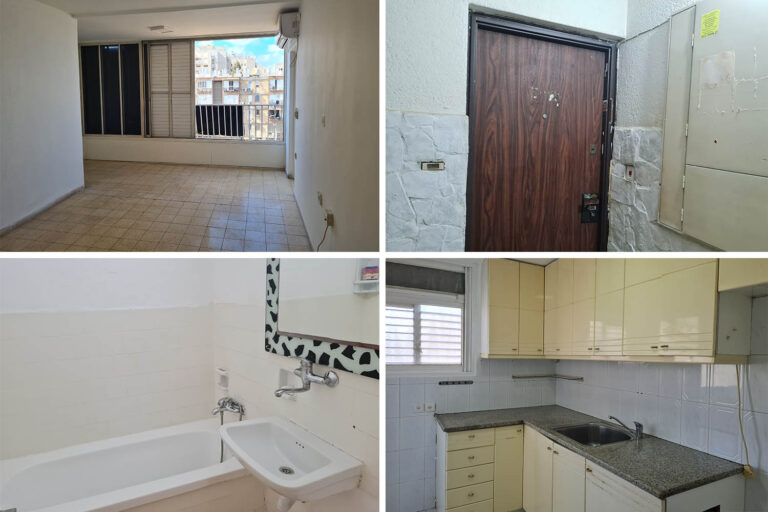
Eli also turns out to be a very nice man. He works in newspaper distribution. Since divorcing a few years ago the apartment is rented and the money is saved for the girls. Therefore, the apartment is dear to his heart, and he is looking for tenants who will take care of it and live in it for the long term. At first glance, it is perfect.
But then he drops a bombshell: the street is destined for redevelopment. No one knows when that will happen. Maybe in a year, maybe in two years. In any case a 90-day notice is given.
“If it’s appropriate,” he says, “all it takes is a wecheck test (a tenant background check platform), and really no other requirements beyond that.” Tel Avivians are not used to hearing such happy words, but who wants to have to suddenly bounce from an apartment in 90 days in a year or even two?
Azor: 2.5 rooms, 58 sq.m., 3,500 shekels ($1,025) per month
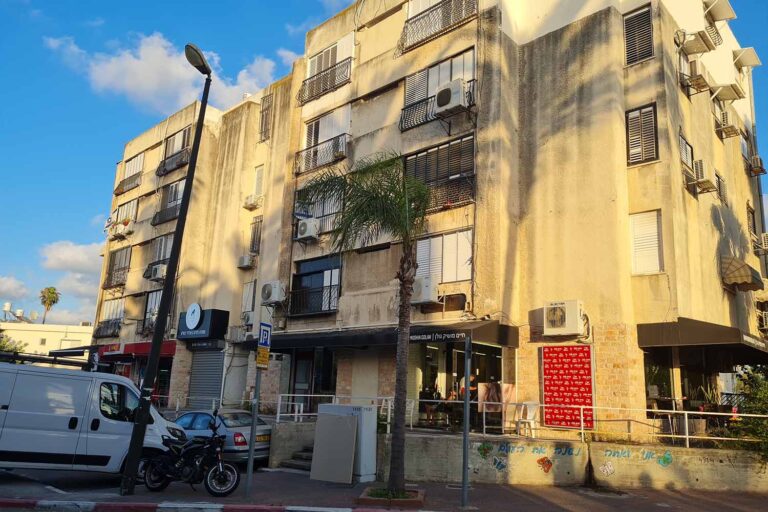
In the afternoon a message came from a friend: “Did you look at Azor?” Azor (another satellite town south-east of Tel Aviv) is very close to south Tel Aviv. Come on, let’s look in Azor, what’s there to lose?
On Yad Shtayim there were several apartments in Azor, relatively cheap, and right next to major bus routes connecting to Rishon Le’Zion, Holon and Tel Aviv. This area could definitely work for us. Our eyes caught an ad for a 2.5-room apartment which was defined as being “for a single person who loves a lot of space, or for a couple.” It’s listing price of 3,500 shekels ($1,025) a month including property tax and water was astonishing. Truly a dream. It’s hard to remember the last time such a price was seen. There must be a catch, right? The attached photos and video looked just fine. The landlord, Yossi, a kind retiree, asked to speak on the phone and politely asked who the apartment was for? Where do we work? And do we have a decent salary? We set an inspection for 7:30 p.m.
I flew to the bus stop. Headphones in, laughing at fate, I played Bob Dylan’s “Dear Landlord”:
“Please, don’t put a price on my soul / My burden is heavy / My dreams are beyond control / When that steamboat whistle blows / I’m gonna give you all I got to give / And I do hope you receive it well.”
I arrived on time. It took me 15 minutes from door to door, and a one-minute walk from the bus stop. Yossi was waiting at his cousin’s kiosk near the apartment. The apartment is on Herzl Street, an old train-style building, and there is a small supermarket, a laundromat and an adjoining post office. All good signs.
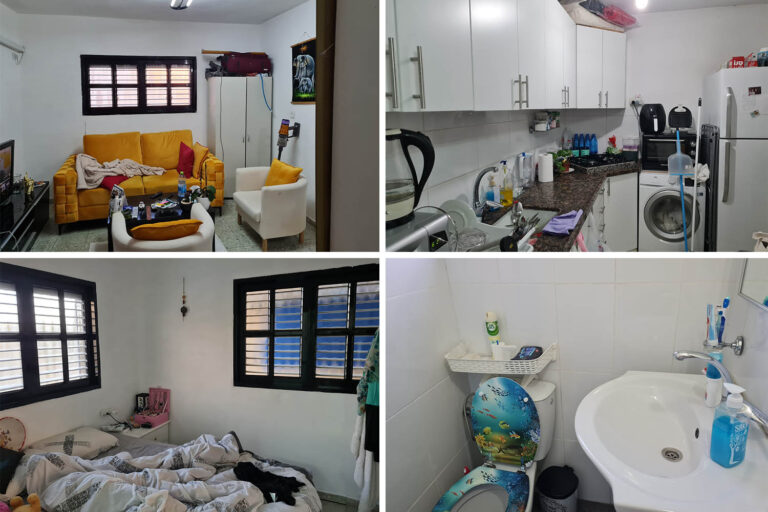
I reach the second floor and meet Stav, the outgoing tenant. She opens a door and then another door. There’s the catch. This is a divided apartment. Admittedly renovated, but tiny, with a neighbor packed in tight in its other half. Not really an apartment “for a single person who loves a lot of space,” and certainly not for a couple. Nor 2.5 rooms. Barely two. There’s a living room and kitchen in one space, bedroom and miniature shower. That’s it. The journey is over.
I came home frustrated. I searched and did not find anything suitable. On the other hand, it turns out that outside Tel Aviv, landlords are significantly nicer to deal with. So maybe there is still hope.
This article was translated from Hebrew by Hannah Blount.






